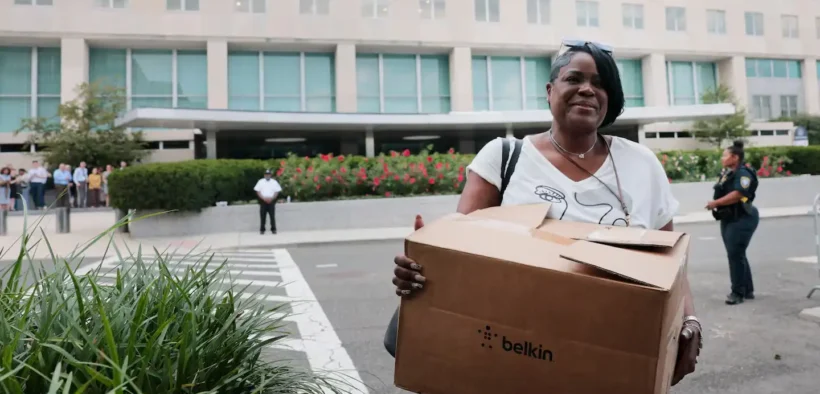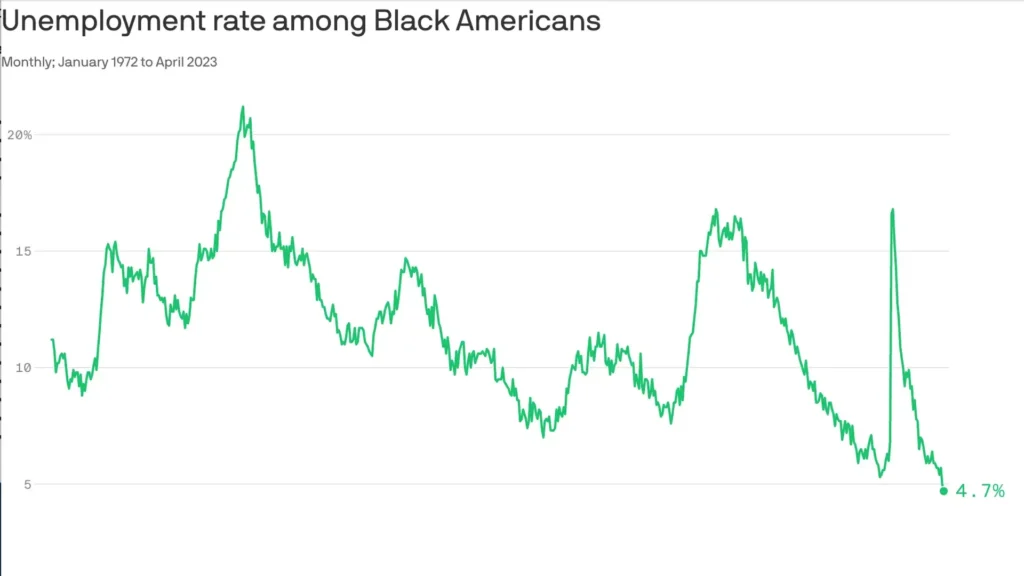Black Unemployment Rises to 7.2% in July, Outpacing National Average
Share

The latest U.S. labor market report has revealed a worrying trend: while national unemployment remains low, Black workers continue to face disproportionately higher joblessness. In July 2025, the Black unemployment rate stood at 7.2%, more than double the rate for white workers and well above the overall national average of 4.3%.
A Fragile Job Market for Black Workers
Economists warn that the gap exposes how vulnerable Black workers remain to economic slowdowns. As employers pull back on hiring in response to high interest rates and inflationary pressures, Black communities often feel the brunt of the impact first.
“Black workers are still overrepresented in industries most sensitive to economic swings, like retail, hospitality, and transportation,” said Elise Gould, senior economist at the Economic Policy Institute. “When hiring slows, these jobs are often the first to be cut, and wage growth stalls.”

The Policy Backdrop
The Federal Reserve held interest rates steady at 4.25%–4.50% in July as part of its ongoing inflation-control measures. While this decision aims to stabilize prices, higher borrowing costs weigh heavily on small businesses and households.
For Black families, who already face median household wealth of just $45,000 compared to nearly $285,000 for white families, the risk of financial strain grows.
“These numbers show that economic policy cannot be race-blind,” said Marc Morial, president of the National Urban League. “We need targeted strategies to ensure Black workers are not left behind in every downturn.”

Structural Inequities Still at Play
Beyond macroeconomic conditions, structural inequities continue to drive disparities. Black job seekers encounter higher levels of hiring discrimination, weaker access to professional networks, and barriers to career mobility in high-growth sectors such as tech and finance.
At the same time, rollbacks on diversity, equity, and inclusion (DEI) programs, through lawsuits and policy changes at both state and federal levels, are further narrowing opportunities for Black professionals.
dBusiness programs designed to support Black founders and workers are increasingly under legal scrutiny, with cases like the Fearless Fund lawsuit challenging grants for Black women entrepreneurs.
The Stakes Ahead
The July jobs data underscores the stakes as the U.S. navigates a delicate balance between cooling inflation and sustaining growth. If hiring slows further in late 2025, Black workers could see unemployment rise even more sharply.
Advocates are urging lawmakers to expand job training, strengthen enforcement of anti-discrimination laws, and protect access to affordable credit and housing. Without such measures, the economic recovery may deepen, rather than close, America’s racial wealth and employment gap.
“This is not just about numbers—it’s about lives,” said Angela Glover Blackwell, founder of PolicyLink. “A fair economy is one where Black workers have the same shot at stability and opportunity as anyone else. Right now, the gap is still too wide.”




















